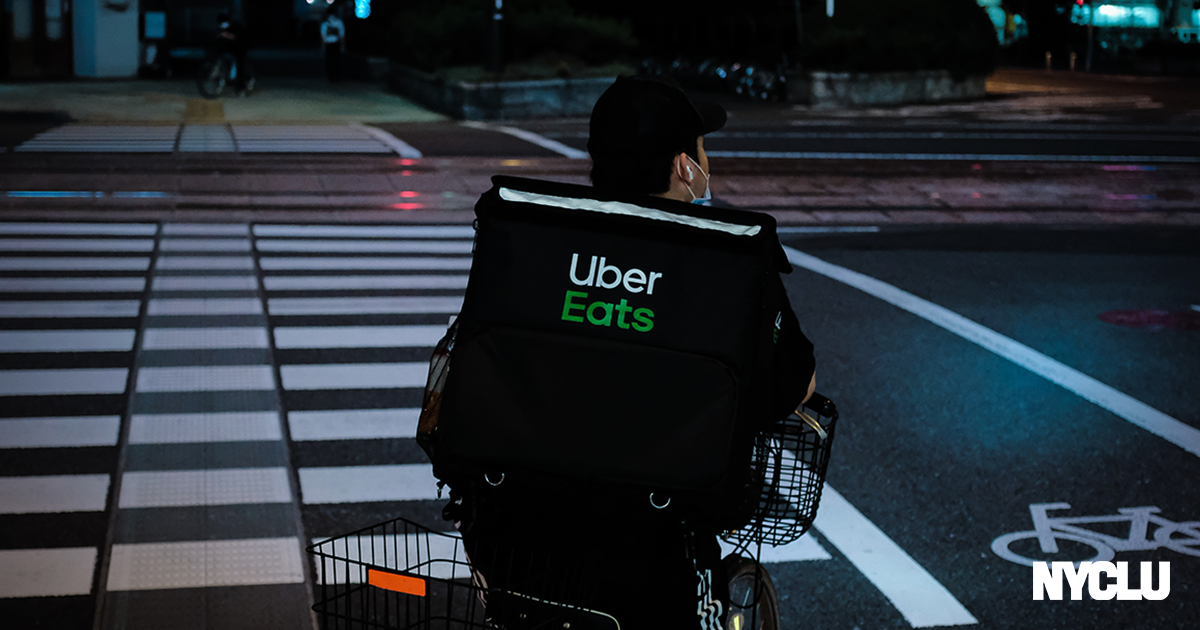Separate and Unequal: App-Based Companies’ Scheme to Deny Workers’ Rights

Last month, numerous news outlets reported that legislation creating a collective bargaining right for app-based drivers and delivery workers is poised to be introduced in New York.
Despite being championed, and pushed through the legislature by Uber, Lyft and other multibillion-dollar app-based corporations, the bill is being lauded as a great deal for workers and even a civil rights victory.
Don’t buy it.
These companies are trying to achieve in New York what they did in California – the creation of a separate class of workers without employee status and without the basic labor rights and protections that virtually all other workers possess.
The bill would save the companies hundreds of millions of dollars by avoiding legal compliance with unemployment insurance, workers’ compensation, Social Security and short-term disability, family and medical leave, safety and discrimination laws, and minimum wage and overtime pay. And unfortunately, if these companies win, workers will lose.
The so-called “Right to Bargain Act” is just the latest installment in the long history of exploitation by exclusion: the denial of basic labor rights for Black, brown, and immigrant workers by creating a separate category of workers in industries where marginalized groups represent the majority of the workforce. Employers have been doing this for years by misclassifying low-wage workers as independent contractors.
Modern US labor law arose in response to the harsh working conditions resulting from the inequitable bargaining power between employers and employees. But from its inception, the law discriminated as to which workers deserved legal protection – with people of color and immigrants always the workers who have been left out.
Both the National Labor Relations Act and the Fair Labor Standards Act intentionally excluded agricultural and domestic workers — largely Black workers at the time — from minimum wage, overtime pay, and the right to collectively bargain. The collective bargaining carve-outs continue to this day.
Close examination of The Right to Bargain Act reveals it’s a sham proposal that would eliminate virtually all legal responsibilities that app-based companies owe their workers.
The Right to Bargain Act would continue this discriminatory history by carving app-based drivers and delivery workers out from basic legal protections. In New York State, 77 percent of app-based transportation workers — which includes delivery workers — are people of color and 80 percent are foreign-born.
App-based workers are also among the poorest of all workers. According to a recent survey of app-based driver and delivery workers in San Francisco, 45 percent couldn’t handle a $400 emergency payment without borrowing.
Close examination of The Right to Bargain Act reveals it’s a sham proposal that would eliminate virtually all legal responsibilities that app-based companies owe their workers. It would rewrite New York labor law to codify the legal fiction that app-based drivers are not employees and permanently exclude them from basic labor protections like minimum wage, overtime pay, paid family and sick leave, and unemployment benefits.
It reverses gains workers have made at the city level and blocks all municipalities from enacting stronger laws going forward. It would destroy the first-in-the-nation driver minimum pay rules, which guarantee that app-based drivers are paid for all their working hours.
The legislation would also undermine current efforts of worker groups like Los Deliveristas Unidos to fight for better working conditions in New York City, such as the right to use restaurant bathrooms, more transparency from the app companies, and better pay. The Act would even undo legal victories won by workers for Uber, Lyft, and Postmates that upheld their right to state unemployment insurance.
And though the legislation is touted as a vehicle to help gig workers unionize, it would actually severely limit the right to form a union and collectively bargain. The Act allows companies to control their employees’ union communications and narrowly defines the issues that can be subject to bargaining.
Combined, the elements of this bill would exclude a vast swath of app-based workers – many of whom worked through the pandemic to provide New Yorkers with essential services – from basic legal protections. The resulting system would only exacerbate what has become an app-based underclass of workers of color, which some have begun calling the “servant economy.”
Economic and racial justice depend on equitable access to jobs that provide fair wages, safe work environments, and protections against exploitation and discrimination. These goals have been placed out of reach, however, for too many poor Black, brown, and immigrant workers who are trapped in low-wage, exploitive jobs. For those at the very bottom of the economic ladder, the calculation is simple—take the job because there is no alternative.
Preventing the exploitation of vulnerable workers is at the core of all of our labor laws. The New York legislature must let the app-based companies know they will not be hoodwinked. They must call out the Right to Bargain Act for what it really is – a crass attempt to improve the corporate bottom line by packaging an anti-worker bill as a boon for workers.
The Right to Bargain Act must be defeated.
